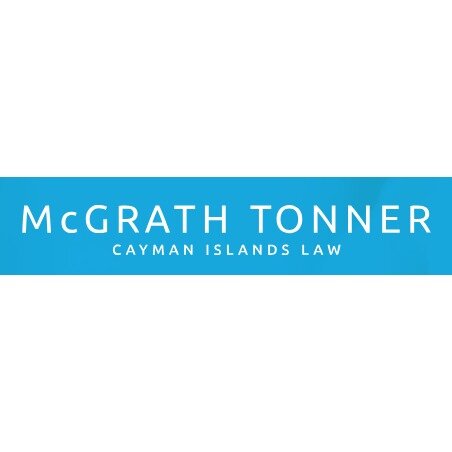Best Housing, Construction & Development Lawyers in George Town
Share your needs with us, get contacted by law firms.
Free. Takes 2 min.
Free Guide to Hiring a Real Estate Lawyer
List of the best lawyers in George Town, Cayman Islands
About Housing, Construction & Development Law in George Town, Cayman Islands
Housing, Construction & Development Law in George Town, Cayman Islands pertains to the legal regulations and processes surrounding real estate, building construction, and urban development within the jurisdiction. This area of law governs issues related to property ownership, zoning regulations, building permits, land use planning, and more.
Why You May Need a Lawyer
You may need a lawyer specializing in Housing, Construction & Development Law in George Town, Cayman Islands for various reasons, including disputes over property rights, construction defects, violations of building codes, boundary disputes, tenant-landlord conflicts, real estate transactions, and more. A lawyer can provide legal guidance, represent you in court, or help negotiate settlements in complex legal matters.
Local Laws Overview
The local laws in George Town, Cayman Islands related to Housing, Construction & Development cover a wide range of topics such as the National Building Code, the Development and Planning Law, the Strata Titles Law, and the Landlord and Tenant Law. These laws outline the rights and responsibilities of property owners, developers, tenants, and other stakeholders in the real estate and construction industries.
Frequently Asked Questions
1. What are the requirements for obtaining a building permit in George Town, Cayman Islands?
In order to obtain a building permit in George Town, Cayman Islands, you must submit a complete application to the Department of Planning, which will be reviewed for compliance with the National Building Code and local zoning regulations.
2. What are the rights and obligations of landlords and tenants in George Town, Cayman Islands?
The rights and obligations of landlords and tenants in George Town, Cayman Islands are governed by the Landlord and Tenant Law. This law outlines the responsibilities of each party regarding rent payments, property maintenance, evictions, and lease agreements.
3. How can I resolve a construction dispute with a contractor in George Town, Cayman Islands?
If you have a construction dispute with a contractor in George Town, Cayman Islands, you may need to seek legal advice to negotiate a resolution, file a claim with the relevant authorities, or pursue legal action through the courts if necessary.
4. What are the regulations regarding property development in George Town, Cayman Islands?
Property development in George Town, Cayman Islands is governed by the Development and Planning Law, which sets out the requirements for land use planning, environmental impact assessments, building heights, setbacks, and other planning considerations for new developments.
5. Can a landlord evict a tenant without cause in George Town, Cayman Islands?
In George Town, Cayman Islands, a landlord can only evict a tenant for specific reasons outlined in the Landlord and Tenant Law, such as non-payment of rent, violation of lease terms, or other lawful grounds for eviction.
6. What are the steps to subdivide property in George Town, Cayman Islands?
Subdividing property in George Town, Cayman Islands involves obtaining approval from the Lands and Survey Department, preparing a subdivision plan, and complying with the requirements of the Strata Titles Law if creating strata-titled units.
7. How can I file a complaint about a construction project in George Town, Cayman Islands?
If you have a complaint about a construction project in George Town, Cayman Islands, you can contact the Department of Planning to report the issue and request an inspection to address any violations of building codes or regulations.
8. What are the rights of homeowners in a strata development in George Town, Cayman Islands?
Homeowners in a strata development in George Town, Cayman Islands have rights and obligations outlined in the Strata Titles Law, including participating in strata meetings, paying strata fees, maintaining common areas, and resolving disputes with other owners or the strata corporation.
9. Can I appeal a decision by the Department of Planning in George Town, Cayman Islands?
If you disagree with a decision by the Department of Planning in George Town, Cayman Islands, you may have the right to appeal to the Appeals Tribunal, which is an independent body that reviews planning decisions and provides a forum for resolving disputes related to development applications.
10. How can I ensure compliance with the National Building Code in George Town, Cayman Islands?
To ensure compliance with the National Building Code in George Town, Cayman Islands, property owners, developers, and contractors must adhere to the regulations and standards set out in the code, which cover aspects such as structural design, fire safety, plumbing, electrical systems, and accessibility requirements.
Additional Resources
For further information or assistance related to Housing, Construction & Development Law in George Town, Cayman Islands, you may contact the Department of Planning, the Lands and Survey Department, the Cayman Islands Real Estate Brokers Association, or consult with a qualified legal professional specializing in real estate and construction law.
Next Steps
If you require legal assistance or advice on Housing, Construction & Development matters in George Town, Cayman Islands, it is recommended to seek a consultation with a reputable law firm or lawyer experienced in handling real estate, construction, and development issues. Be prepared to discuss your specific situation and concerns to receive personalized legal guidance and support.
Lawzana helps you find the best lawyers and law firms in George Town through a curated and pre-screened list of qualified legal professionals. Our platform offers rankings and detailed profiles of attorneys and law firms, allowing you to compare based on practice areas, including Housing, Construction & Development, experience, and client feedback.
Each profile includes a description of the firm's areas of practice, client reviews, team members and partners, year of establishment, spoken languages, office locations, contact information, social media presence, and any published articles or resources. Most firms on our platform speak English and are experienced in both local and international legal matters.
Get a quote from top-rated law firms in George Town, Cayman Islands — quickly, securely, and without unnecessary hassle.
Disclaimer:
The information provided on this page is for general informational purposes only and does not constitute legal advice. While we strive to ensure the accuracy and relevance of the content, legal information may change over time, and interpretations of the law can vary. You should always consult with a qualified legal professional for advice specific to your situation.
We disclaim all liability for actions taken or not taken based on the content of this page. If you believe any information is incorrect or outdated, please contact us, and we will review and update it where appropriate.















